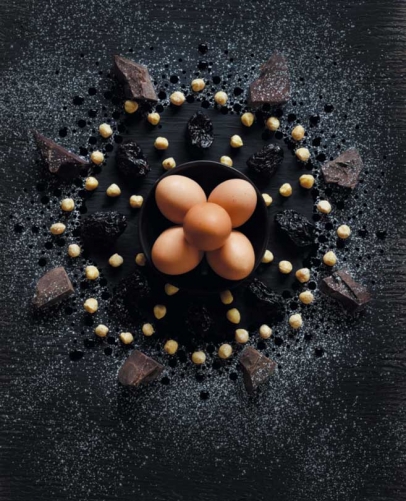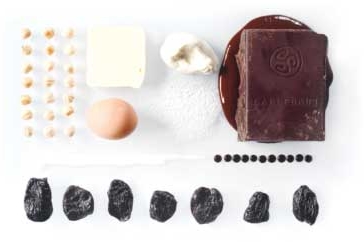Angels, Devils, Sins and Snobbishness
Many years ago I brought Sin to a holiday dinner: a dense, flourless, dark chocolate cake, dusted with confectioners' sugar and served with clouds of whipped cream. It was a hit, but today I feel regret.
I don't regret that I served it to my family or that I enjoyed a second helping. But I am a little ashamed of what we called it. To be fair, I didn't create the recipe or christen it as sinful, but I did present it under that name to those gathered around the table. It felt rather titillating to everyone present, as if calling it Sin–thinking of it as sin, partaking in sin–made it extra satisfying.
That doesn't sit well with me now; I don't think it's helpful to attribute moral qualities to what I eat. My religious education is virtually nonexistent, but I have read the Ten Commandments and, I promise you, not one of them said to avoid chocolate.
Today a Google search for "chocolate sin recipe" takes me to the patisserie world's equivalent of an opium den. An astonishing number of cakes, pies, puddings and beverages go by the same moniker as my dessert, and almost all involve generous measures of chocolate. There is even a Seven Deadly Sins Chocolate Cake.
When did we come to think of food in terms of guilt, bad and naughty? How can a fairly simple chocolate dessert be likened to something that requires penance afterward?
I suspect the inspiration for chocolate Sin came from an attempt to one-up the famously dark Devil's Food cake, which as far as I can tell was named to set it apart from the light and fluffy Angel Food cake that had been around for a while (it first appeared in an American cookbook by Isabella Stewart in 1878). This whiter-than-white cake is super fluffy and cloudlight. According to Wikipedia, it was described as "food of the angels," and a curious eater can't help wondering if it qualified for the angelic diet because it was so utterly free of fat–no egg yolks, no butter. No chocolate, no sin. No point, I'm tempted to say, although of course Angel Food can be quite edible when smothered in fresh berries and cream.
There was a time, really not that long ago, when food was just food. For many populations, it was in scarce supply. You were grateful to get it, whatever it was–and it wasn't often chocolate cake. It might have been lard smeared on white bread; you didn't feel guilty about the fat grams, either.
Then the 20th century saw much of North America move into a time of shocking abundance. Although occasional references to eating contests date back to the 13th century, competitive eating as a sport (!) began in the United States in 1916. Today it's governed by Major League Eating, an organization that "helps sponsors to develop, publicize and execute world-class eating events in all varieties of food disciplines." (MajorLeagueEating.com) Next time you experience a twinge of guilt about having pain au chocolat for breakfast, compare yourself to these contestants who regularly eat as much as they can, as fast as they can.
Let's just lose terms like sin and guilt when we discuss food. If you don't feel guilty about eating a chocolate dessert, you'll be more likely to do it openly, in the presence of other people, and slowly as you let every bite linger luxuriously on the tongue. Shame is what encourages some people to haul a dozen doughnuts into a dark closet, to be wolfed down in rushed privacy–no chewing, no tasting and no actual appreciation of the treat itself. Just a tummy ache and a terrible smear on the soul.
I didn't christen the cake below either, but I loved its name as soon as I heard it. And it's full of chocolate, butter and cream, which might make some people feel guilty. But it also contains prunes, which most people would put on the "good" side of the table. So use those to justify it, if you must.
Eating this cake will not make you a snob and it won't make you a sinner. But maybe don't eat it every day. And don't enter a contest to see if you can eat a whole one faster than anybody else in your town. Don't chop it up, toss it with wooden utensils, and call it a salad. Instead, cut it into small slices, share it with loved ones and enjoy every bite.
Debbra Mikaelsen thinks it's criminal to pour ketchup over macaroni and cheese, but even that isn't a sin. DebbraMikaelsen.com






